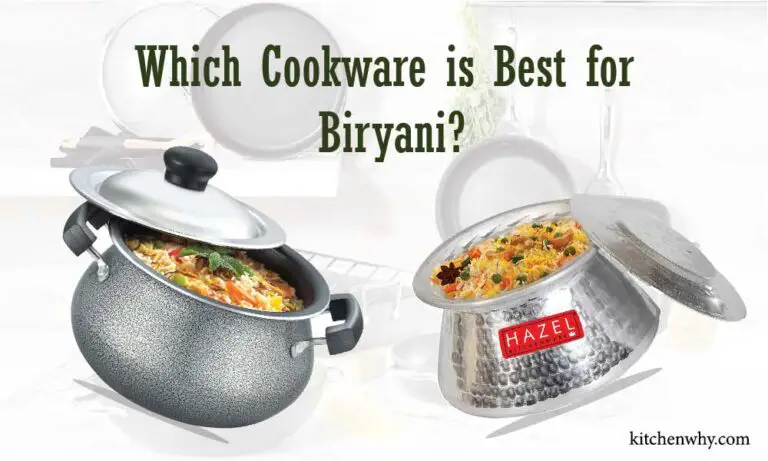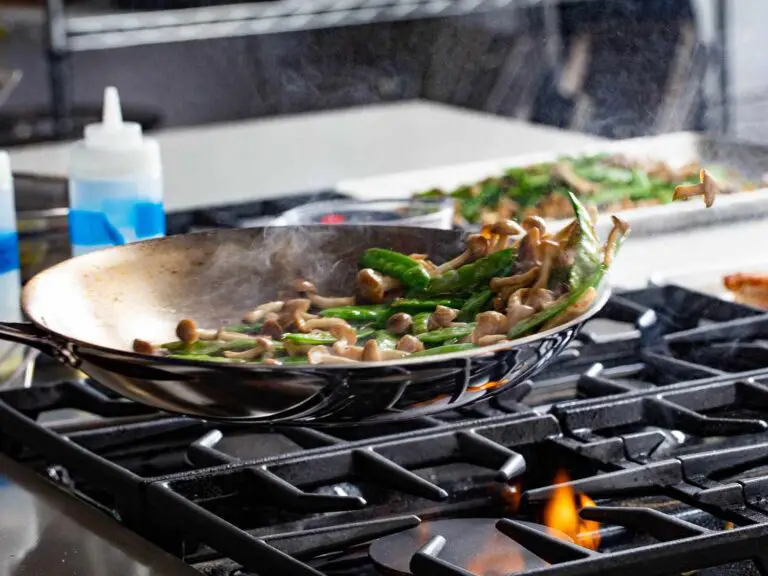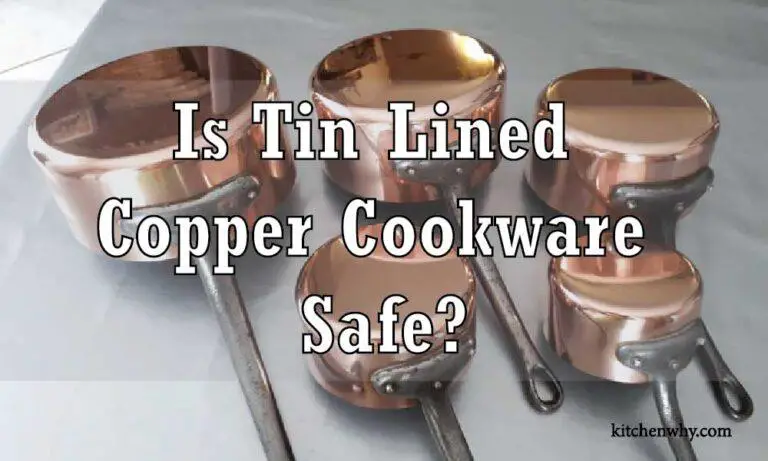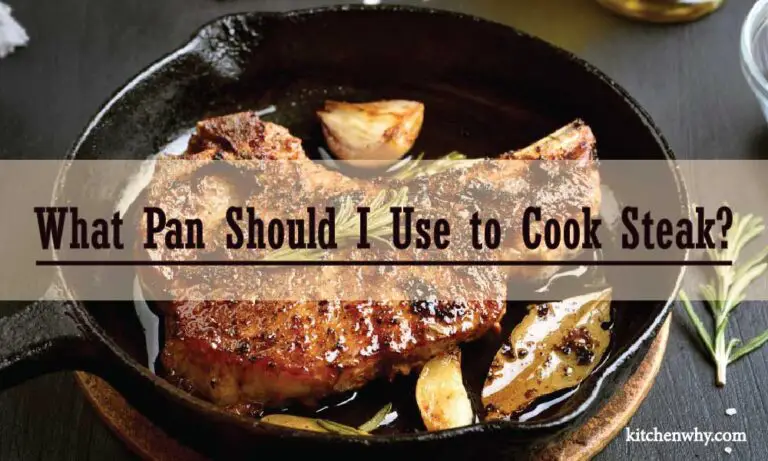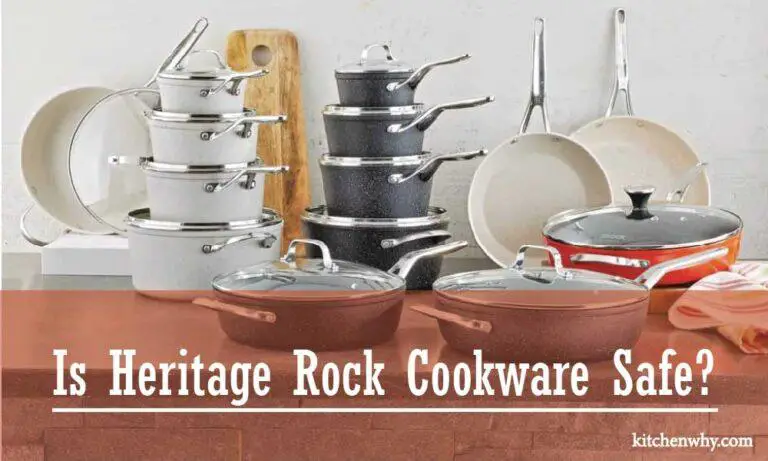Is Hard Anodized Cookware Safe for Glass Cooktops?

Hard anodized cookware is a popular type of cookware that is made with a non-stick coating. This coating makes the cookware easy to clean and offers good durability and heat retention. Some people believe that hard anodized cookware may be unsafe for glass cooktops, but this isn’t the case.
So, Is Hard Anodized Cookware Safe for Glass Cooktops? Absolutely! Hard anodized cookware is an outstanding selection for glass cooktops, as its hardy outer layer prevents scratches that might otherwise damage the glass top’s finish.
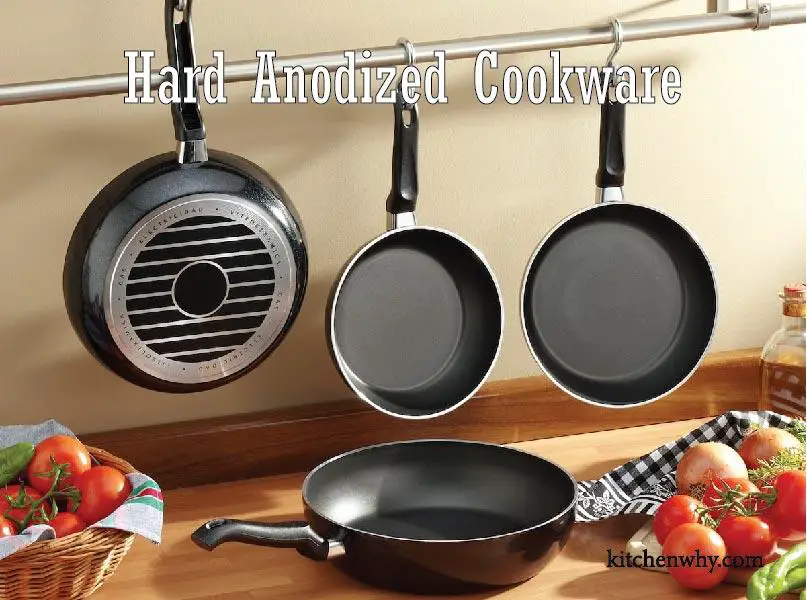
What is an anodized cookware?
Hard anodized cookware is made of durable aluminum that has been treated with a hard coating. This coating makes the cookware hard, durable, and non-reactive. Because of this durability, hard anodized cookware can be used on glass cooktops without any issues. This type of cookware is dishwasher-safe as well and can be used for stovetop or oven cooking.
In addition to its durable and non-reactive surface, hard anodized cookware is available in a variety of colors, including black, red, and silver. These varieties make it easy to find cookware that matches your style and preferences. Overall, hard anodized cookware is an affordable option that provides durability and non-reactivity for your kitchen needs.
Is Hard Anodized Cookware Safe for Glass Cooktops?
An affirmative answer to this inquiry would be ‘Yes’! Hard anodized cookware is an exceptional option for glass cooktop surfaces as the durable outer layer will protect against scratches that can potentially damage or worsen the glass top. Moreover, it is also a wonderful selection for ceramic and induction cooktops!
With the continual evolution of cooking equipment, hard anodized cookware has recently risen in popularity – making an appearance in kitchens all over. Not only does it provide efficient cooking, but it is safe to use on glass cooktops, making it the perfect cooking companion for those with glass-top stoves.
Advantages of anodized cookware
If you’re looking for non-stick cookware that offers great non-stick performance, hard anodized cookware is an excellent choice. Let’s talk about the advantages of anodized cookware.
- Hard anodized cookware is a type of cookware that is made of a hard, protective coating. This coating provides the cookware with non-stick properties and doesn’t require any oil or butter to cook food.
- These cookware is scratch-resistant.
- Easy to clean.
- With hard anodized cookware, you don’t have to worry about discoloration over time as the coating won’t react with acidic foods like tomatoes or vinegar.
- Hard anodized cookware is durable and will not crack or break easily.
Disadvantages of anodized cookware
Despite of having some advantages, anodized cookware has some disadvantages too. You should know them.
- Hard anodized cookware may not be able to handle high temperatures, so it may not be able to properly cook your food.
- Hard anodized cookware may also release toxic fumes when heated. This can lead to health hazards.
- These cookware is non-dishwasher safe, so you’ll have to clean it by hand. This makes it difficult to keep the surface of the cookware free from residue and stains.
Safe to Use Anodized Cookware on Glass Cooktops?
Yes, Anodized cookware is safe to use on glass cooktops. They are made with a hard coating that makes it resistant to scratches and other damage. Hard anodized cookware is safe to use on glass cooktops provided it is properly cleaned and maintained. Always use a tri-ply lined nylon pad when cleaning hard anodized cookware to avoid scratching the cooktop.
Do not use abrasive pads or scrubbers on the surface of your glass cooktop, as this can damage the finish. Use caution when moving or stacking pots and pans while cooking in hard anodized cookware, as the hard coating may scratch the surface of your cooktop.
Recommendation for Using Anodized Cookware on Glass Cooktops
Before using hard anodized cookware on glass cooktops, you should follow some basic rules and need to know some important things. We recommend you the following steps.
- Hard anodized cookware is a type of cookware that is made from aluminum that has been specially treated to make it hard and durable. This type of cookware is safe to use on glass cooktops as it won’t react with the glass and cause any damage.
- Do not heat hard anodized cookware in the oven or microwave. This can increase the risk of the cookware heating unevenly and possibly cause damage to the cooktop surface. Also, do not put hard anodized cookware in the dishwasher. This can damage the surface of the cooktop and render it non-functional.
- Hand-wash hard anodized cookware with hot water and a mild detergent. Use non-abrasive cleaning products for best results when washing hard anodized cookware.
- Finally, don’t use hard anodized cookware if it has become damaged or worn out.
What is The Difference Between a Glass Cooktop And a Ceramic Cooktop?
A glass cooktop is made of a transparent or translucent material, such as glass or plastic, and is used for cooking food on top, that is heated by an electric or gas stovetop. On the other hand, Ceramic cooktops are made from a hard, heat-resistant ceramic material and are typically used for baking or boiling water or other types of liquids and are typically used with gas or electric stoves. Both types of cooktops are designed to distribute heat evenly and prevent hot spots, which is why they are both popular among cooks.
There are some advantages to using a ceramic cooktop over a glass cooktop. Ceramic cooktops are more durable and can withstand higher temperatures than glass cooktops. They also tend to be less prone to scratches and other damage, making them a good choice for kitchens with high-traffic areas. They offer a variety of benefits over glass cooktops, such as increased safety and durability. Ceramic cooktops also tend to be more energy-efficient than glass cooktops, as they use less energy to achieve the same level of cooking heat.
Can I Use My Regular Nonstick Pans on a Glass Cooktop?
Yes, It is generally safe to use your regular nonstick pans on a glass cooktop, but be sure to follow the manufacturer’s instructions carefully. However, it is important to be careful not to scratch the surface of the cooktop with the nonstick pan, as this may lead to damage or discoloration. Rather than using a nonstick pan on a glass cooktop, it may be easier and safer to use an oven mitt or silicone baking mat.
Additionally, be aware of the risks of using nonstick cookware on an oven or stovetop – these surfaces are not designed for cooking with oil or grease. Some Glass cooktops are made with special coatings that may react negatively with certain types of nonstick pans, so it is important to test a small piece of food first to ensure that the pan will not create any burnt or bitter flavors. If you are unsure about whether or not your pan will work on a glass cooktop, it is best to consult with the manufacturer.
Is Hard Anodized Cookware Safe for Induction?
Hard anodized cookware is a durable and non-reactive cookware material that’s popular for its easy-to-care-for surface and durability. It’s made with a hard outer layer that resists wear and tear, making it an excellent choice for cooking on an induction stovetop.
However, hard anodized cookware isn’t immune to induction damage. If you use your hard anodized cookware on an induction stovetop, make sure to test the cookware by placing it briefly on the burner for a few seconds before using it longer. This will ensure that no damage occurs to the cookware.
Also, ensure that your hard anodized cookware is properly sealed against the elements to prevent damage. This will help to protect the cookware from harsh weather and other environmental factors.
Is Hard Anodized Cookware Healthy?
Yes, hard anodized cookware is healthy and non toxic. These cookware are made of aluminum that has been treated with a hard protective oxide. This provides an extra level of protection from high-temperature cooking-related damage, making it ideal for glass cooktops. The protective oxide coating prevents the aluminum from oxidizing, which makes it non-stick and non-toxic. It’s also highly durable and durable, making it an excellent choice for any cook.
Hard anodized cookware is safe to use on glass cooktops thanks to the protective oxide coating. The durable aluminum material is durable and non-stick, making it a great alternative to stainless steel cookware when cooking on glass cooktops. This durable material is non-toxic and lead free, making it an eco-friendly option as well.
With so many benefits and so many great uses, hard anodized cookware is an excellent option for anyone looking for durable cookware with extended durability and enviably non-stick properties.
What’s The Difference Between Hard Anodized Cookware and Regular Cookware?
Hard anodized cookware is made of aluminum that is treated with a hard coating. This hard coating protects aluminum from corrosion and makes it strong and durable.
This coating also inhibits the aluminum from getting oxidized, which means it doesn’t become discolored or brittle over time. Hard anodized cookware doesn’t require any special care and can be cleaned in the dishwasher.
Regular cookware is made of softer aluminum that is not treated with a hard coating. They are easy to clean and perfect for cooking non-stick cookware on glass cooktops. The hard surface prevents non-stick cookware from sticking, so you don’t have to worry about tracking non-stick pan oil into your glass cooktop.
Hard anodized cookware are great for everyday use, but regular cookwares are also good option if you want a more durable cookware option. Both types of cookware provide great performance and make cooking easy and enjoyable.

What Cookware Should Not Be Used on a Glass Top Stove?
Most people are aware that cookware with a rough bottom, such as cast iron or aluminum, can scratch the surface of their glass top stove. However, there are other types of cookware that can damage your stove and should be avoided. Pots and pans with a warped bottoms can cause uneven cooking and may also scratch the stovetop.
Glass or ceramic bakeware is another no-no because it is likely to crack under high heat. Stick to using stainless steel, enameled cast iron, or tempered glass cookware on your glass top stove for best results.
What is the Best Cookware to Use on a Ceramic Glass Cooktop?
If you’re lucky enough to have a ceramic glass cooktop in your kitchen, you know how great they are to cook on. But what is the best cookware to use on a ceramic glass cooktop? There are a few things to consider when choosing cookware for a ceramic glass cooktop.
First, you’ll want to make sure that the bottom of the pan is flat. This will help ensure even cooking and prevent hot spots. Second, you’ll want to choose a material that conducts heat well.
Stainless steel or cast iron are good choices. Finally, you’ll want to avoid using any cookware with rough bottoms, as this can scratch the surface of the cooktop. So what is the best cookware to use on a ceramic glass cooktop?
Stainless steel or cast iron pans with flat bottoms are your best bet. Avoid using any pans with rough bottoms, and you’ll be all set!
What Kind of Pans Can You Use on a Glass Cooktop?
If you’ve ever cooked on a glass cooktop, you know that they can be a bit finicky. You have to be careful about what kind of pots and pans you use, or you’ll end up with scratches or worse. So what kind of pans can you use on a glass cooktop?
The best type of pan to use on a glass cooktop is one made of smooth, non-porous material. This will prevent scratching and make cleanup much easier. Stainless steel, enameled cast iron, and anodized aluminum are all good choices.
Glass or ceramic-coated pots and pans are also good options, but be sure to check the manufacturer’s instructions to make sure they’re compatible with your particular cooktop. Avoid using any pot or pan that has a rough surface, as this can scratch the cooktop. Also avoid using anything made of copper or brass, as these materials can react with the glass and cause permanent damage.
And always lift pots and pans off the cooktop rather than sliding them, to avoid scratches. With a little care and attention, you can keep your glass cooktop looking like new for years to come!
Can Aluminum Pan Go on Glass Top Stove?
There are a lot of people that are unsure if they can use an aluminum pan on their glass top stove. The answer is yes, you can use an aluminum pan on your glass top stove; however, there are a few things that you need to keep in mind.
- First, when using an aluminum pan on a glass top stove, it is important to make sure that the bottom of the pan is perfectly flat. If the bottom of the pan is not flat, it could cause the pan to warp and this could damage your stovetop.
- Second, you need to be careful not to slide the aluminum pan across the surface of the stovetop. This could also cause damage to your stovetop. Instead, lift the pan off of the surface when you’re finished cooking.
- Third, it is important to clean your aluminum pans regularly. If you do not clean them regularly, they can start to build up a patina that will make them more difficult to clean in the future.
- Fourth, Aluminum cookware can leach into food during the cooking process. So it’s better avoid using them and go for ceramic or enamel-coated cookware which does not have this property.
- Finally, aluminum reacts with acidic foods such as tomatoes so it’s always a good idea to coat it with nonstick spray or parchment paper before adding food.
7 Best Cookware for Glass Top Stove | Hard-Anodized Cookware
What Pans Should Not Be Used on a Glass Top Stove?
There are a few types of pans that should not be used on a glass top stove. Pans with a rough bottom, such as cast iron or uncoated aluminum, can scratch the cooktop. Pans with an excessively curved bottom can also cause problems by not making full contact with the cooking surface.
If you’re unsure whether a pan is safe to use on your glass top stove, consult the owner’s manual or contact the manufacturer.
Aluminum on Glass Top Stove
If you have a glass top stove, you know that they can be a bit tricky to clean. And if you have an aluminum pot or pan, you may have noticed that it can leave behind a dark discoloration on your stovetop. But don’t worry, there’s an easy way to clean it up! Here’s what you’ll need:
- Baking soda
- Water
A soft cloth or sponge To start, mix together a paste of baking soda and water. Then, using a soft cloth or sponge, apply the paste to the affected area and scrub gently.
You should see the dark discoloration start to disappear. Once it’s gone, rinse off the area with water and dry with a clean towel. That’s it! Your stovetop will be looking good as new in no time.
Induction Cooktop
An induction cooktop is a type of cooking surface that uses electricity to generate heat. It consists of an electromagnetic coil that produces a magnetic field when an electric current is passed through it. This magnetic field induces eddy currents in a metal pot or pan, which in turn creates resistance and generates heat.
Induction cooktops are very efficient, since the only thing that gets hot is the pot or pan itself. They also respond quickly to temperature changes, making them ideal for cooking delicate items like eggs or fish. And because there’s no open flame, they’re much safer than gas or electric cooktops.
If you’re thinking about switching to an induction cooktop, there are a few things you should know.
- First, not all pots and pans will work with induction – they need to be made of a ferrous material like cast iron or stainless steel.
- Second, you’ll need to use special induction-safe cookware if you want to take advantage of the cooktop’s full capabilities.
- Finally, remember that an induction cooktop requires a dedicated circuit – so make sure your home is properly wired before making the switch!
Conclusion
Anodized cookware is a type of pan that has been treated with an electrochemical process to make it more durable and resistant to corrosion. This treatment also makes the pan less likely to stick to food, which can be a problem with other types of cookware. However, some people are concerned that anodized cookware may not be safe for use on glass cooktops.
There is no evidence that anodized cookware is unsafe for use on glass cooktops. In fact, many experts believe that anodized cookware is actually safer to use on glass than other types of cookware because it is less likely to scratch the surface. However, if you are still concerned about using anodized cookware on your glass cooktop, you can always place a sheet of parchment paper between the pan and the surface to prevent any scratches.
In case you have any queries about if it is safe to use on your stove, don’t hesitate to reach out to us. We will be more than delighted to assist you!
Popular Post:

